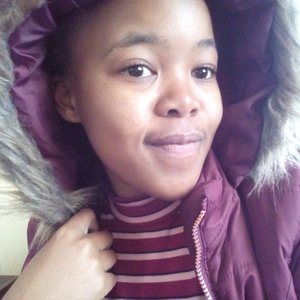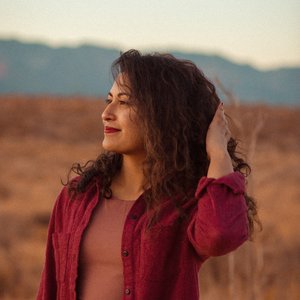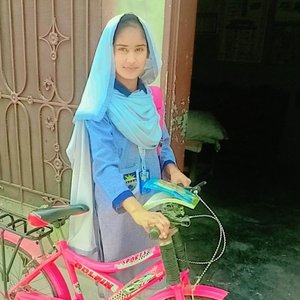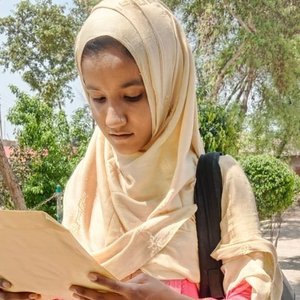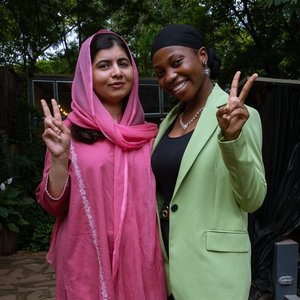Too Black and not Black enough
16-year-old student Karabo Nwamusi shares her reflections on colourism in South Africa. (Courtesy of Karabo Nwamusi)
16-year-old student Karabo Nwamusi shares her reflections on colourism in South Africa.
The minute I heard that my school was going to be hosting a beauty pageant, I knew I wanted to sign up. I had seen how former Miss Universe Zozibini Tunzi of South Africa uses her platform to teach girls leadership skills. I thought that beauty pageants could be a powerful avenue to speak out about the issues I cared about, like gender-based violence and period poverty. It was an exciting opportunity and I couldn’t wait for the competition to begin.
Soon after the beauty pageant announcement, my friend shared with me that she had entered. I was so happy and proud of her. I told her how I was excited to participate as well, but my excitement was demolished when she told me, “It's only for girls with dark skin tones.”
In South Africa, a formerly colonised country, people still classify each other and discriminate against one another according to skin tone so it makes sense that this contest would encourage dark-skinned girls to take up space. I see colourism — the discrimination against darker skin tones and preference for those with lighter skin — around me every day in the media, in advertisements, in my community. When Zozibini Tunzi won her crown, she used the opportunity to speak out about colourism she experienced as a dark-skinned Black woman: “I grew up in a world where a woman who looks like me, with my kind of skin and my kind of hair, was never considered to be beautiful. I think that it is time that stops today.”
Colourism has a long history in South Africa. White colonists began employing colourism to create a divide between enslaved South Africans, giving those with lighter skin preferential domestic tasks while those with dark skin had more demanding work in the fields. In apartheid, the government issued the Population Registration Act of 1950 assigning citizens into three groups (Black, White and Coloured) based on their racial characteristics. Those categories then determined what social, political and economic rights and opportunities you could access.
With colourism continuing to affect us in the present day, I understood that this pageant wanted to try to counter this discrimination. There are times where I've experienced light skinned privilege. I felt this most often at school when it came to fitting in with certain groups of my peers. I would notice how easy it was for me to be accepted — but darker-skinned girls never seemed to easily fit in. They were called names and verbally bullied because of the way they looked.
At the same time, the beauty pageant’s rules made another part of me feel like once again I didn’t fit in anywhere. Living in a country like South Africa, I feel like I’m often considered too Black for certain things and not Black enough for others.
For example, every Black student enrolled in a Model C school — a formerly Whites-only school that integrated after apartheid — must endure criticism, discrimination and racism from the teachers as well as our non-Black peers. People of other races often still assume all Black people aren’t good enough and make us feel inferior because colonisers oppressed our ancestors.
I’ve also experienced discrimination in the Black community for being too light. People automatically assume your achievements are because of your fairer skin without realising how much work you’ve put in. While colourism does often shape who gets what opportunities — hurting dark-skinned Black girls and women in particular — constantly hearing you only achieved success because you’re lighter can mentally break a person. We can do more to better understand each other’s experiences.
“We as Black girls should encourage and support each other at every opportunity. The more we discriminate against each other based on how light or dark we are, the less likely we are to succeed in fighting racism outside of our communities.”
I hate that my friends argue about which skin tones are better. Each one of those irrelevant and divisive conversations leaves a scar in my heart. I feel like we as Black girls should encourage and support each other at every opportunity. The more we discriminate against each other based on how light or dark we are, the less likely we are to succeed in fighting racism outside of our communities.
In the case of this beauty pageant, I felt like it could have included young Black women of all skin tones while still creating a space to discuss colourism. The pageant could have made sure that everyone felt accepted and had a platform to speak out on the issues affecting them — from colourism and racism to climate change and gender discrimination. The more our society creates programmes excluding certain skin tones, the more it causes division and limits our voices.
If you have ever been told you’re not light or dark enough, I hope you know that that person was mistaken. You don’t have to be anything but exactly the way you are. Let's appreciate and embrace each other while challenging those who discriminate and divide us based on skin tone. We may come in different shades but think of the things we could do together. The more we unite, the better we will be able to build a fairer future for the next generation of young Black women.
 Read more
Read more






